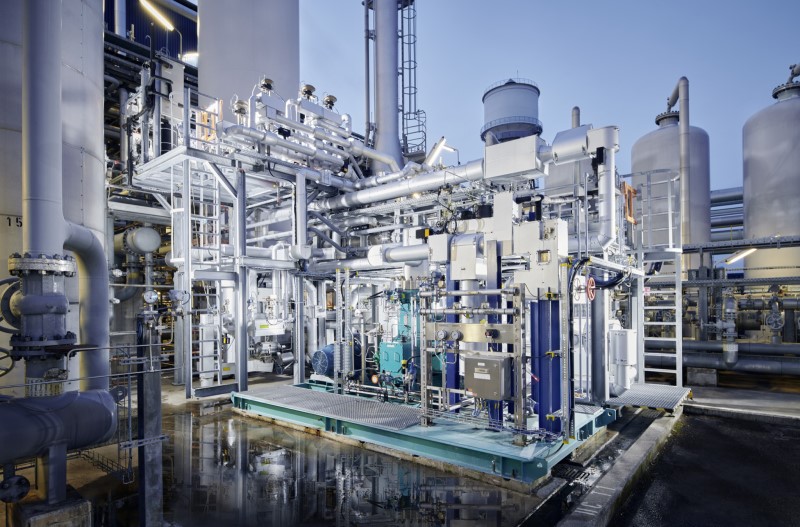Linde Debuts Plant for Extracting Hydrogen from Natural Gas Pipelines Using Membrane Technology
By Maddy McCarty, Digital Editor

Linde Engineering started a full-scale pilot plant in Germany to showcase how its HISELECT powered by Evonik membrane technology can extract hydrogen from natural gas pipelines, contributing to a decarbonized industry.
This solution provides an efficient and reliable entry to change existing natural gas networks for hydrogen transportation, said Tobias Keller, Head of Adsorption & Membrane Plants at Linde Engineering.
The process works in scenarios in which hydrogen is blending with natural gas and transported in natural gas pipelines, working for a blend of 5 to 60% hydrogen. Membranes extract hydrogen from the natural gas streams at the point of consumption, resulting in hydrogen with a concentration level up to 90%. Linde Engineering’s pressure swing adsorption technology can further process the hydrogen to achieve a purity of up to 99.99%, Linde said.
The process uses a combination of membrane and pressure swing absorption, which are both well-known and approved, Keller said.
“These technologies have been used for decades and Linde is the leading technology company in that regard,” Keller said. “The demonstration plant was installed as a showcase that this solution provides an efficient and reliable entry to change existing natural gas networks for hydrogen transportation.”
The technology is commercially available, he said, and is an enabler towards hydrogen economy and supports a decarbonized industry.
“Without this technology, a transition towards a hydrogen network would be far more complicated and would take several years longer,” Keller said.
Membrane technology like HISELECT could be integral for transporting hydrogen to end users, for purposes like industry feedstock, a source of heat and power, or as a transportation fuel.
It can also help establish hydrogen infrastructure like the European Hydrogen Backbone, which visualizes 11,600 km (7,207 mi) of hydrogen pipeline by 2030 and 39,700 km (24,668 mi) of hydrogen pipeline by 2040, with 69% converted from natural gas pipelines. There are 11 European transmission system operators working on creating the European Hydrogen Backbone, Linde said.
The HISELECT high-performance membrane package unit is based on a robust polymer developed by Evonik. The strategic partnership between Evonik and Linde for membrane-based natural gas processing was first announced in 2018.
The HISELECT demonstration in Dormagen, Germany, is the world’s first full-scale pilot plant of its kind.
“The HISELECT demonstration in Dormagen allows us to display essential technology for transporting hydrogen via natural gas pipelines in a real-life setting,” said John van der Velden, Senior Vice President Global Sales & Technology, Linde Engineering. “It shows a way to leverage existing infrastructure. In doing so we avoid the high costs and the long process that would be involved in building a dedicated hydrogen pipeline infrastructure.”
Related News
Related News

- 450-Mile Eiger Express Pipeline Gets Green Light for Permian-to-Gulf Natural Gas Transport
- Energy Transfer’s Lake Charles LNG Project Wins Export Extension
- Kinder Morgan Launches Binding Open Season for Texas-to-Arizona Pipeline Expansion
- Harvest Midstream to Acquire 1,500 Miles of MPLX Pipelines in $1 Billion Deal
- ATCO’s 143-Mile, 1.1 Bcf/d Yellowhead Pipeline Project Wins Regulatory Approval
- Hungary to Start Talks with Qatar About Buying LNG
- Japan Becomes Top Buyer of LNG from Russia's Sakhalin 2
- BayoTech Relocates Northern California Hydrogen Hub to Accelerate Deployment
- Energy Transfer to Build $5.3 Billion Permian Gas Pipeline to Supply Southwest
- Ontario Seeks Study on Alberta-to-Ontario Pipeline and James Bay Port Corridor




Comments